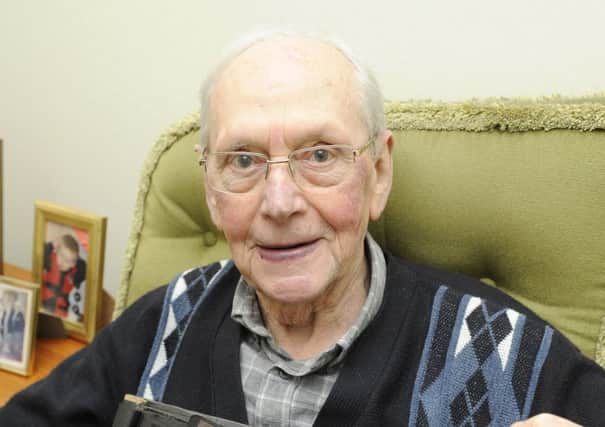Russia honours Arctic convoys war veterans


The Arctic convoys boasted crews of British and other allied navies who sailed vital supplies to soldiers battling against Hitler in the Eastern Front.
Fleets of merchant vessels were flanked by Royal Navy warships and dozens were lost as they were attacked from the air and sea.
Advertisement
Hide AdAdvertisement
Hide AdAround 3000 civilian sailors lost their lives on the convoys, which set off from the Clyde and Loch Ewe from 1941 to 1945.
Now 48 veterans from the campaign will receive one of Russia’s highest military honours – almost 70 years on from their heroic struggle – at a ceremony in St Mary’s Cathedral.
One of those being honoured for his “personal courage and valour” is Royal Navy veteran Cyril Davidson Deas, 92, who served on the battleship King George V and said he helped sink Nazi Germany’s most powerful vessel.
The Juniper Green resident said: “We had three or four trips to Russia, but sometimes we didn’t go all the way. We were taken off the Arctic convoys once to go sink the Bismarck.
“There were times when we couldn’t even fire a single gun as they were just blocks of ice.
“There were some very rough seas. Even in the battleship, it felt like a rocking horse. It was very difficult to stay warm. I was only 19 then.”
Both of Mr Deas’ parents died while he was at sea, and he wasn’t able to attend the funerals. “That’s the only thing I regret about it,” he said.
Mr Deas later served with the Royal Navy in North Africa, Italy and in the Far East before his war was finally over.
Advertisement
Hide AdAdvertisement
Hide AdThe men will receive the Ushakov medal, a Russian naval honour named after a celebrated 18th century admiral who never lost a battle.
For almost 70 years, the veterans’ contribution to the war effort was largely forgotten by the public. They finally received a decoration from the UK government in 2013, when Royal Navy and Merchant Marine veterans were given a new medal, the Arctic Star.
Many of the ageing veterans are unable to attend tomorrow’s ceremony themselves – of those being awarded, 12 will be represented by family members.
The Arctic convoys didn’t just carry arms and supplies to Soviet ports – they also carried back vital raw materials such as coal, ore and timber to beleaguered Britain.
Timofey Kunitskiy, the Russian vice-consul general in Edinburgh, said there had been a strong desire to recognise the sacrifice made by Arctic convoy sailors.
He said: “The Russian government has always been committed to paying respect to the veterans of the Arctic convoys, which represent the co-operation with our British and American allies during the Second World War.
“Previously, there were different medals that were awarded. The Ushakov medal is one of the most important in our system of decorations.
“We have quite a few memorials to the Arctic convoys, mainly in the northern Russian cities where they arrived, but just a month-and-a-half ago, a new Arctic convoys memorial was unveiled in St Petersburg.
Advertisement
Hide AdAdvertisement
Hide Ad“It consists of three figures – a Soviet sailor, a British sailor and an American sailor. The symbolic importance of the convoys was the most significant – it was a symbol of our alliance.”
Ceremonies will also take place later this week in Glasgow, Aberdeen and Inverness, with 214 veterans being recognised across Scotland.